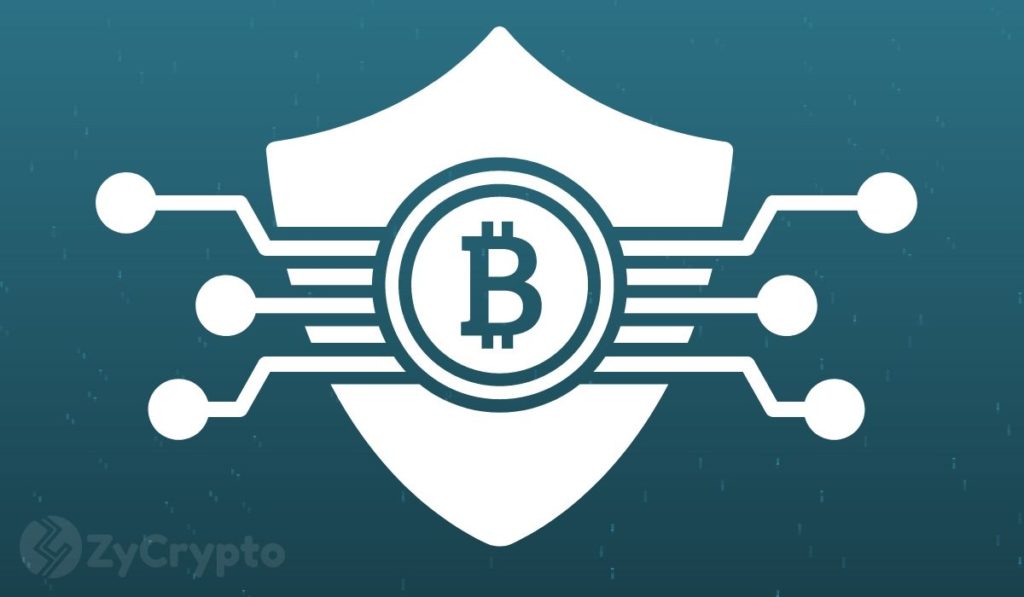2023-4-20 16:56 |
Wallets and securityMake your bitcoin untraceable with coinjoin in Trezor Suite
Bitcoin is not anonymous by default. It is easy to see exactly how much bitcoin you have, and everyone you’ve ever sent it to, if you don’t use the right tools to protect your privacy. That’s we launched coinjoin in Trezor Suite, a completely optional feature that makes bitcoin easy to use privately.
Since each bitcoin transaction carries data about the coins’ history, when you use bitcoin you may accidentally be adding little bits of information that can be used to identify you. Now, you can use coinjoin to strip personal data from your bitcoin, and take back your right to financial privacy.
Using coinjoin in Trezor Suite
Open Trezor Suite to update and install the latest Trezor Model T firmware, and you can start right away. Just click the plus + select bitcoin and choose coinjoin from the account type dropdown. Send some bitcoin to the new account then select Start to begin.
Save 15% on a Trezor Model T hardware wallet to celebrate the launch of coinjoin. Offer ends April 26. Coinjoin will also be made available for the Trezor Model One in the coming months.Privacy shouldn’t be complicatedMaking your bitcoin private can be difficult, especially if you give crypto exchanges your identity documents. While you can and should withdraw your coins to your own wallet, the exchange will always know who you are and where you send that money afterwards. Even worse, if that exchange’s data is ever leaked, your identity and net worth become public information.
With coinjoin, you can choose to make some or all of your bitcoin private, just by sending it to your coinjoin account and pressing Start. In the background, your Trezor will send the bitcoin to itself in a series of joint transactions alongside hundreds of other coinjoin users, making it near impossible for anyone to later know what piece of bitcoin came from where, while you stay in control of your funds the whole time.
Select Start to make your bitcoin privateEven if you buy bitcoin without identifying yourself, there are many ways to leak data about yourself. Since bitcoin is so transparent, the blockchain itself can be analyzed in lots of ways to build a profile of individual users. Using coinjoin lets you start fresh without leaving a trail of data an attacker might use against you.
Why you need and deserve privacy
How to restore privacy with coinjoinReady to stop sharing personal information with every transaction? Get a wallet built to protect your privacy. Use coinjoin on Trezor today and pay with your money, not with your data!
https://medium.com/media/7b31328b3a104d20a1d86c03386d79af/hrefCoinjoin has been implemented directly in the free Trezor Suite app and made as simple as possible: create a new coinjoin account and transfer some bitcoin to it. Once the funds have arrived, just press Start.
Any bitcoin you want to use privately after the coinjoin can be spent directly from the coinjoin account. This is the easiest way to select the coins with the highest privacy and to avoid relinking your funds to personal data. Some services including exchanges may restrict payments using coinjoined funds, so check the policy of any third-party providers you use and consider changing provider if necessary.
What to know before you coinjoinKeep your Trezor connectedThe full coinjoin process can take a couple of hours to complete on average, using default settings. You should leave your Trezor connected the whole time, but you can lock your laptop. Your Trezor will sign each coinjoin transaction automatically, always sending the funds back to itself.
You can cancel or pause coinjoin at any time unless you see the message ‘Coinjoin in progress. Do not disconnect your Trezor.’ Interrupting a coinjoin will not affect your funds but you may be prevented from coinjoining those UTXOs again for some time.
How much bitcoin should you coinjoinCoinjoin works best with amounts from 0.1 through 1 bitcoin. Smaller amounts will be less economical due to mining fees, and larger amounts may result in too many small UTXOs to manage.
Fees related to coinjoinThere is a 0.3% service fee taken from the total amount coinjoined, as well as a mining fee for each coinjoin round. The service fee is taken only once: if, for some reason, not all funds are made private on the first attempt, the fee will only be charged on the remaining amount. Very small amounts will not pay a service fee but will still pay mining fees.
Tor connections may be slowerCoinjoin in Trezor Suite takes place over the Tor network to maximize privacy. Due to the multiple layers of connections, it may take a couple of minutes to connect and load your coinjoin account. To speed this process up, you can choose to have Trezor Suite remember your coinjoin account.
Trezor improves with feedbackAs the first hardware wallet implementation of coinjoin, there will be lots to optimize in the coming months. We would be happy to hear your feedback via social media and our Support Team are ready to help with any issues or questions.
Avoiding risk with coinjoinThe coinjoin process uses a coordinator, run by zkSNACKs, which is in charge of selecting which pieces of bitcoin (UTXOs) to include in a transaction and ensuring there is enough liquidity for the coinjoin to provide the required level of privacy.
In rare cases a particular set of UTXOs may not be included if it was present in a previous round and caused the coinjoin to fail because the user disconnected their device. In this case, the UTXOs would be unable to participate in a coinjoin for 6 hours.
Some users may also have UTXOs which are known to be high-risk due to where they originated from. The coordinator may decide not to include UTXOs which are likely to result in other users’ UTXOs inheriting that risk. Owning a high-risk UTXO will not prevent other UTXOs in your wallet from being coinjoined.
What is coinjoin?Coinjoin is the name of a large coordinated bitcoin transaction involving many unknown participants. Each participant decides how much bitcoin they want to make private and, once all inputs have been gathered, the coordinator splits the bitcoin into pieces of equal size, sending each participant the same total amount they put in, at a new unlinked address.
To learn more about coinjoin and how it works, check out the video above or read our article What is coinjoin? on the Trezor knowledge base.
Why use coinjoin?Taking the time to make your funds private can help you close off potential data issues like data leaks from centralized exchanges, balances shared with merchants, or money used in supporting sensitive causes such as funding journalists. Wherever you may have shared identifying information, coinjoin can minimize the impact of that information becoming public.
No privacy tool is able to guarantee anonymity on its own, which is why Trezor Suite provides coinjoin as part of its complete privacy offering. Using Tor, which is essential for coinjoin, will protect your connection from observers, while block filters keep your addresses restricted to your app.
Coinjoin: privacy for bitcoin was originally published in Trezor Blog on Medium, where people are continuing the conversation by highlighting and responding to this story.
origin »Bitcoin price in Telegram @btc_price_every_hour
Bitcoin (BTC) íà Currencies.ru
|
|













